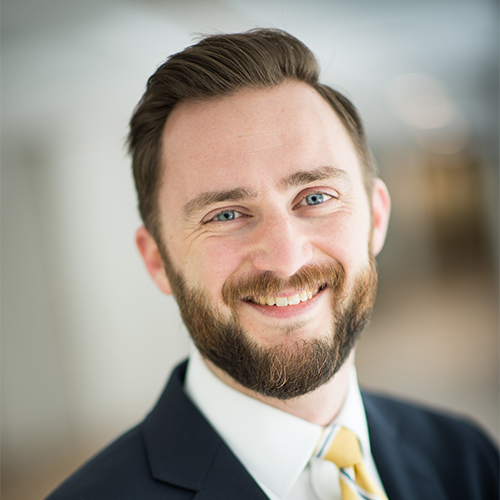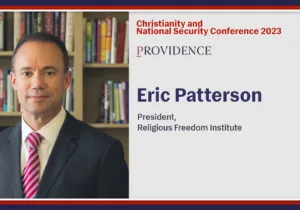The worst has passed, we think. Since coronavirus made its way from Wuhan to the United States, political leaders have worked frantically to stop the disease’s spread. The lockdowns and social distancing regulations seem to have succeeded: despite a butcher’s bill higher than the Vietnam War’s, the pace of new infections seems to be slowing, and each day’s death count is less grim than the one before. This war of attrition has cost millions of jobs and hundreds of billions of dollars, forcing the Federal Reserve and Congress to spend at unprecedented rates and driving the economy the brink of destruction.
Now that the danger is lessening, state and local governments in the United States are deciding when and how to relax their emergency decrees and reopen their economies. The early movers have been bitterly castigated for their alleged indifference to the lives and health of their communities, so much so that many governments are trying to announce their reopening plans sotto voce. Given the continued uncertainty about the virus’ spread and the relative safety of various reopening measures, the vitriol hardly seems warranted. The popular debate has become so heated because at its heart, the controversy is not political, but theological.
One of the most widely accepted theories in social science is the secularization thesis. Essentially, it predicts that as countries modernize, they leave behind their pre-modern religiosity and become ever more secular. As far back as 1985, scholars like Phillip Everett Hammond writes, “Even today, scholars do not—and probably cannot—doubt the essential truth of the thesis.”
As on many other issues, Americans have been stubbornly unwilling to behave on religious matters the way experts predict. Despite the decline in overt religiosity in the United States, which is widely lamented in some corners and celebrated in others, Americans have retained their faith long after they should have secularized. Even those who have turned away from religious belief have generally replaced traditional Christianity with a pantheon of little gods. Observers from Eric Voegelin to Walter McDougall have observed this new American religiosity, and they are not the only ones.
Over 20 years ago, Charles Krauthammer noticed a new trend in political discourse: many Democrats, who had been the strongest advocates for a laissez-faire stance on social issues, were striking an increasingly moral tone in public health debates about the use of things like condoms (in favor) and cigarettes (opposed). Unwilling to let social conservatives claim to be the only defenders of public morality, these figures promoted an alternate morality focused on physical issues, not spiritual. He summarizes, with his tongue in his cheek, “Health is their religion, the body their temple.”
What Charles identified would have been no surprise to Friedrich Nietzsche, who writes “there are more idols than realities in the world.” And just as the ferociously mustachioed German would have predicted, worship of this new deity has only a passing resemblance to actual health. This new god, “Healthiness,” is part of a small pantheon that centers around the chief deity, a “Science” that supposedly holds the key to understanding everything in the universe, from morality to medicine. Real science is limited to understanding the natural and physical world through repeatable experiments and observation, and Science is as far removed from the actual method of scientific discovery as it is a pale reflection of a real god. The most vociferous partisans of Science generally have no greater insight into, say, biology than Ra’s priests did into the sun. Their Science is science…ish.
Americans generally have a monotheistic heritage, and the worshippers of Healthiness have developed an ecosystem that mimics aspects of Christianity’s. Healthiness now boasts a set of prophets, such as Dr. Oz and whichever talking head is in the box on the left side of the TV screen, who spread the faith. There are high church catechisms, such as the USDA Dietary Guidelines that are only somewhat wrong and change every five years, and low church rivals that often appear in news media as the ubiquitous “studies” showing that a glass of wine a day will make your heart healthier, or kill you, or something in between. Just as the medieval scholastics in the University of Paris debated the finer metaphysical points of angelology, their modern counterparts ponder how many milligrams of sodium can dance through a ventricle safely. There are short-lived denominations that appear from time to time, such as the Atkins diet and gluten sensitivities, but others earn recognition from the government, like the Affordable Care Act’s requirement that health insurance providers not discriminate against homeopathy. Then there are the cults, such as the anti-vaxxers.
Although Healthiness advocates often partake of other faiths too, particularly science-ishm, they have retained an emphasis on exclusive truth claims more commonly seen in monotheistic religions. That is not to say that the faithful agree on everything: the suburban mom who only buys organic and the gym bros who get their quack supplements from GNC probably disagree as much about doctrine as a Catholic and a Lutheran would. The specific articles of faith vary from adherent to adherent, but they have succeeded remarkably in impressing their dogmas and stigmas on unbelievers. As anyone who has heard “it’s unhealthy” pronounced judgmentally can attest, even Americans who avoid fad diets often think about health in moralistic terms.
It is this widespread stigma that is most important to the worshippers of Healthiness, and they zealously encourage the performance of caring about “health.” Plenty of unbelievers mechanically recite their liturgies, just as many Roman bureaucrats found Jesus only after Emperor Constantine did, and as plenty of conquered Egyptians and Syrians preferred the shahada to the jizya. Witness the moral panic about vaping and resulting bans, even though vaping can actually help nicotine addicts stop smoking and despite the paucity of evidence that a well-made vaping pen has serious health effects. Even drug policy conversations have generally shifted toward discussions about the relative health effects of various depressants, stimulants, and hallucinogens, as though there is no other reason than health to stop people from developing crippling dependencies that rob them of their freedom.
Of course, there’s nothing wrong with encouraging people to take care of their health and using science to determine best practices, but Healthiness is only partly concerned with science and health. Equating healthy living with morality, and even elevating it above other moral considerations, is a position that can be justified only by theology, not science. Moreover, most Healthiness worshippers are not particularly concerned with understanding the actual scientific evidence behind their beliefs. If they were, they would have to accept that although there are some sureties—no one recommends a diet of anthrax and uranium, for example—on most matters regarding health, scientists and medical researchers tend to be much more cautious in drawing conclusions than Healthiness advocates are. This is even more true with coronavirus: if after decades of research, the amount of sodium a person can eat healthily is still up for revision, how dogmatic can a reasonable person be about a disease that six months ago was known only to a handful of Chinese scientists and the Communist officials covering it up?
For the undeterred believer, only the performance of caring about health can satisfy, which the discussion about reopening beaches in Florida and businesses in Georgia revealed. There is not much evidence that coronavirus is transmitted outdoors, but you wouldn’t know it from the storm of vitriol raining down on people walking with their families on the beach or going outside without wearing masks. Tellingly, the faithful are using religious terms: Amanda Mull in The Atlantic condemns Georgia’s “human sacrifice” and Siva Vaidhyanathan compares lockdown skeptics to Moloch worshippers in The Guardian. As Sean Trende notes, the ubiquitous “bend the curve” mantra has shifted to “crush the curve.” No threat to health can be permitted, even when infection rates and death counts are falling and healthcare systems are able to handle new cases. Not incidentally, the states that are the most inclined toward reopening tend to be the ones with the fewest cases per capita and the biggest drops in caseloads, which raises the question of which side of the debate is most devoted to understanding the available data and acting accordingly.
Recognizing that Healthiness is a false religion does not mean that Christians should use bizarre theological arguments to condemn mask wearing or ignore medical advice. Back in the day, Saint Boniface showed Thor’s impotence by cutting down Donar’s Oak and daring Thor to respond, but Christians do not need to follow his example quite so literally today. Good health is a gift from God, and Christians should take care of that gift and do what they can to extend it to others. In the book of Job, Satan tries to destroy Job’s faith by taking away the blessings that have made his life so rewarding, his health among them. In Psalm 41, the Lord sustains people on their sickbeds, and not only did Jesus regularly heal the sick and disabled, he also compares himself to a physician. From the start, Christians followed Jesus’ example in helping the sick and suffering. In the mid-third century, a devastating disease struck the Roman Empire that is commonly known as the Plague of Cyprian after the bishop of Carthage who described the symptoms in a sermon, while he and his fellow prelates led their congregations in caring for the sick and the dying, Christian and non.
As they wade into this theological controversy, Christians might do best to encourage the apostles of Healthiness to be more Nietzschean. In “Twilight of the Idols,” Nietzsche describes his habit of testing idols with a hammer—probably more like a tuning fork than a sledgehammer—in the hopes of hearing “the well-known hollow sound” of an empty vessel emanating from within. As Tim Keller argues in Counterfeit Gods, people invent and center their lives around things that are meant to give them success and control over their destinies. Healthiness is not one of the counterfeit gods that he describes, but perhaps it should be, since its adherents hope to gain control over their bodies and lives by following its edicts. Christians should encourage Healthiness believers to test out how well their god serves them, both for fending off the pandemic and for addressing other problems.
As the coronavirus shows, humans still have precious little certainty about their health, even with the advances of modern medicine and science. Despite their best efforts, Healthiness aficionados have gained no more control over their lives than they had before they read the latest sensationalized news article giving a two-sentence description of an abstract of a 40-page article in a scientific journal that uses a statistical model they do not understand. No matter how loudly they insist on stretching conclusions past the evidence’s limits and on condemning others for their disbelief, the hammer’s sound will drown them out.
There are no easy solutions to the reopening dilemma. So much is unknown; even more is uncertain. Prudent leaders should proceed with caution, following the data as best they can, but staying vigilant for new outbreaks and adapting to new circumstances as they come. In other words, they should follow the science, not the Science. Christians should support them with real science and new information as it becomes available, and by bringing a hammer. Masks and gloves too, please.







 Sponsor a student for Christianity & National Security 2024
Sponsor a student for Christianity & National Security 2024